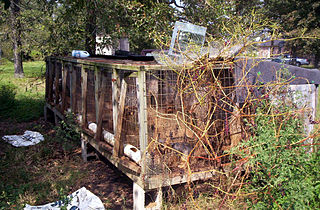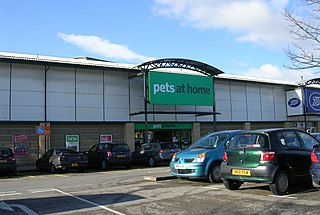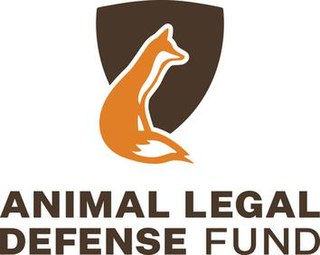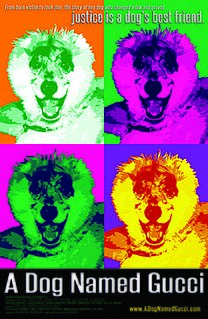Related Research Articles

The American Kennel Club (AKC) is a registry of purebred dog pedigrees in the United States. In addition to maintaining its pedigree registry, this kennel club also promotes and sanctions events for purebred dogs, including the Westminster Kennel Club Dog Show, an annual event which predates the official forming of the AKC, the National Dog Show and the AKC National Championship. The AKC is a non-member partner with the Fédération Cynologique Internationale.
The American Society for the Prevention of Cruelty to Animals (ASPCA) is a non-profit organization dedicated to preventing animal cruelty. Based in New York City since its inception in 1866, the organization's mission is "to provide effective means for the prevention of cruelty to animals throughout the United States."

A puppy mill, also known as a puppy farm, is a commercial dog breeding facility characterized by quick breeding and poor conditions. Although no standardized legal definition for "puppy mill" exists, a definition was established in Avenson v. Zegart in 1984 as "a dog breeding operation in which the health of the mill’s dogs are disregarded to maintain a low overhead and maximize profits". The Veterinary Medical Association of the Humane Society of the United States defines the main characteristics of a puppy mill as "emphasis on quantity over quality, indiscriminate breeding, continuous confinement, lack of human contact and environmental enrichment, poor husbandry, and minimal to no veterinary care."

Cruelty to animals, also called animal abuse, animal neglect or animal cruelty, is the infliction by omission (neglect) or by commission by humans of suffering or harm upon non-human animals. More narrowly, it can be the causing of harm or suffering for specific achievements, such as killing animals for entertainment; cruelty to animals sometimes encompasses inflicting harm or suffering as an end in itself, defined as zoosadism.
Julia Ann Louise Munro was a Canadian politician based in Ontario, Canada. She was a Progressive Conservative member of the Legislative Assembly of Ontario from 1995 until 2018. She represented the riding of York—Simcoe.

A pet shop or pet store is a retail business which sells animals and pet care resources to the public. A variety of animal supplies and pet accessories are also sold in pet shops. The products sold include: food, treats, toys, collars, leashes, cat litter, cages and aquariums. Some pet stores provide engraving services for pet tags, which have the owner's contact information in case the pet gets lost.
A backyard breeder is an amateur animal breeder whose breeding is considered substandard, with little or misguided effort towards ethical, selective breeding. Unlike puppy mills and other animal mill operations, backyard breeders breed on a small scale, usually at home with their own pets, and may be motivated by things such as monetary profit, curiosity, to gain new pets and/or working animals, or to show children "the miracle of birth".
Devocalization is a surgical procedure performed on dogs and cats, where tissue is removed from the animal's vocal cords to permanently reduce the volume of its vocalizations.
Overpopulation in domestic pets is the surplus of pets, such as cats, dogs, and exotic animals. In the United States, six to eight million animals are brought to shelters each year, of which an estimated three to four million are subsequently euthanized, including 2.7 million considered healthy and adoptable. Euthanasia numbers have declined since the 1970s, when U.S. shelters euthanized an estimated 12 to 20 million animals. Most humane societies, animal shelters and rescue groups urge animal caregivers to have their animals spayed or neutered to prevent the births of unwanted and accidental litters that could contribute to this dynamic.

The Humane Society of the United States (HSUS) is an American nonprofit organization that focuses on animal welfare and opposes animal-related cruelties of national scope. It uses strategies that are beyond the abilities of local organizations. It works on issues including pets, wildlife, farm animals, horses and other equines, and animals used in research, testing and education. As of 2001, the group's major campaigns targeted factory farming, animal blood sports, the fur trade, puppy mills, and wildlife abuse.

The Animal Legal Defense Fund is an animal law advocacy organization. Its stated mission is to protect the lives and advance the interests of animals through the legal system. It accomplishes this by filing high-impact lawsuits to protect animals from harm, providing free legal assistance and training to prosecutors to assure that animal abusers are punished for their crimes, supporting tough animal protection legislation and fighting legislation harmful to animals, and providing resources and opportunities to law students and professionals to advance the emerging field of animal law. In addition to their national headquarters in Cotati, California, the Animal Legal Defense Fund maintains an office in Portland, Oregon.

Dog fighting in the United States is an activity in which fights between two game dogs are staged as a form of entertainment and gambling. Such activity has existed since the early 19th century in the United States and was gradually prohibited in all states. It continues as an underground activity in both rural and urban locations.
The National Animal Interest Alliance (NAIA) is a non-profit organization in the United States dedicated to promoting animal welfare and animal husbandry practices, strengthening the human-animal bond, and safeguarding the rights of responsible animal owners and professionals through research, public education and public policy. The NAIA mission is "to promote the welfare of animals."
Donald Pridemore is a Wisconsin electrical engineer and politician.

Petland is a privately owned operator and franchisor of pet stores based in Chillicothe, Ohio. Ed Kunzelman founded the company in 1967. Petland currently operates 131 stores in the United States, and at least 63 in foreign markets including Canada, Japan, China, Mexico, Brazil and El Salvador. The chain is notable for its controversy over documentation from the Humane Society of the United States revealing the purchase of dogs from puppy mills.

Jason Thomas Smith is an American businessman and politician who has been the U.S. representative for Missouri's 8th congressional district since 2013. The district comprises 30 counties, covering just under 20,000 square miles of southeastern and southern Missouri.
Animal welfare in Egypt is a neglected issue. There are only a few organizations that support the rights and wellbeing of animals.
Patti Strand is the founder of the National Animal Interest Alliance (NAIA), a broad-based, mainstream, nonprofit animal welfare organization dedicated to encouraging high standards of animal care and treatment, and to preserving the human animal bond. She is an author of books and articles and has served on numerous local, state and federal animal welfare advisory boards, committees and task force bodies.

A Dog Named Gucci is a 2015 documentary film by Gorman Bechard that chronicles the story of an Alabama puppy set on fire, and the man who came to his rescue. The film made its American festival debut in February 2015 at the Big Sky Documentary Film Festival.
National Mill Dog Rescue (NMDR) is a non-profit organization based in Peyton, Colorado. It was established by Theresa Strader in February 2007, and legally incorporated on July 23, 2007. According to the organization's website, it aims to "rescue, rehabilitate and rehome discarded breeding dogs and to educate the general public about the cruel realities of the commercial dog breeding industry".
References
- ↑ Walker, Patrick M. (2013-02-01). "Federal judge strikes down challenge to Texas' new 'puppy mill' law". Star-Telegram. Retrieved 13 February 2013.
- 1 2 Graef, Alicia (2013-02-08). "Puppies Triumph Over Angry Breeders in Texas Court". Care2 . Retrieved 13 February 2013.
- 1 2 Eaton, Tim (2011-04-26). "House OKs 'puppy mill bill'". Austin American-Statesman. Retrieved 13 February 2013.
- ↑ "Putting teeth behind Texas' new 'puppy mill' law". Star-Telegram. 2011-11-24. Retrieved 13 February 2013.